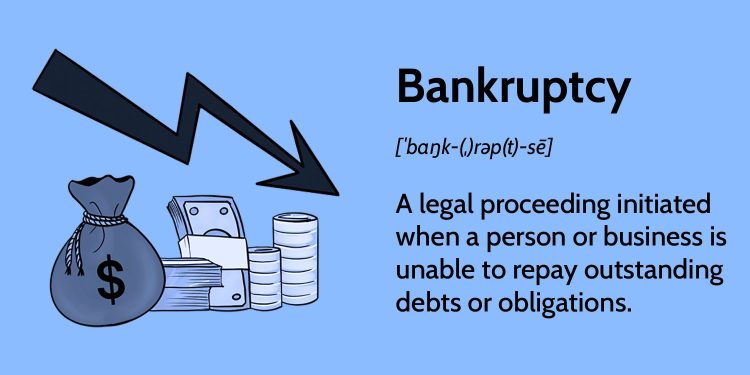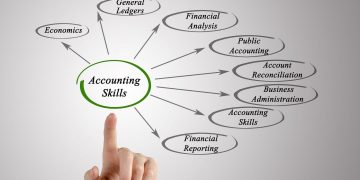What Happens When a Debtor Fails to List a Debt in Bankruptcy
As a creditor navigating the complex landscape of debt recovery, few legal processes are as pivotal yet unpredictable as bankruptcy. But what if a debtor fails to list your debt in their bankruptcy filing? This oversight can trigger a complicated ripple effect that drastically alters the fate of your outstanding monies. In this post, we will explore the intricacies of such a scenario, arm you with insights into both debtor and creditor ramifications, and provide a roadmap for creditors to navigate these tumultuous waters.
Understanding the Criticality of Listing All Debts
In the high-stakes game of bankruptcy, the listing of all debts is akin to a foundational pact of honesty. Bankruptcy is not a selective buffet, and each creditor deserves a seat at the table. Debtors are legally obligated to provide a comprehensive inventory of their liabilities, from the grandest mortgage to the humblest utility bill. The sincerity and breadth of this disclosure underpin the very integrity of the bankruptcy process, which aims to provide equitable resolution for all parties involved.
Debtors who file for bankruptcy without including your claim are not only flouting the procedural rules but also jeopardizing potential avenues of recourse and recovery for creditors.
The Legal Implications for Debtors
The failure to list a debt may seem an innocuous oversight, but in the eyes of bankruptcy law, it can carry heavy repercussions. The comprehensive nature of debt disclosure is a statutory mandate, a foundational requirement in Chapter 7 liquidation and Chapter 13 reorganization cases.
Voiding Dischargeability of Debts
Listing omissions can invalidate the discharge of a debt, leaving it untouched by the cleansing wave of bankruptcy. When a debtor’s oversight comes to light, it opens the door for creditors to challenge the dischargeability of the debt, keeping it alive and enforceable post-bankruptcy.
Potential Fraud Allegations
In egregious cases or patterns of non-disclosure, debtors can face accusations of fraud. Intentionally hiding debts to absolve oneself from repayment is a serious offense that can result in criminal charges, fines, and imprisonment. Bankruptcy fraud is a stringent legal concept with harsh penalties, a stark reminder for debtors to treat the disclosure process with utmost diligence.
Consequences for Creditors
While a failed disclosure might initially seem like a windfall for creditors, it instead often complicates debt recovery and can lead to missed opportunities for timely, if not full, repayment.
Challenging the Debtor’s Obligation
Non-listed debts pose a significant obstruction in asserting a creditor’s rights during bankruptcy proceedings. It shifts the burden onto the creditor to prove the debtor’s obligation, requiring substantiation that must pierce the veil of non-disclosure and the debtor’s defenses.
Loss of Opportunity for Settlement
Bankruptcy offers a structured environment for negotiation, often leading to settlements that balance recovery with debtors’ financial rehabilitation. An unlisted debt, however, is a non-factor in such negotiations, effectively stripping creditors of this potential avenue for recovery.
Potential for Legal Action Against the Debtor
Creditors may find themselves in a precarious position of proving their claim or, in the worst-case scenario, contending with the debtor’s assertions of non-existence of the debt. This can not only prolong the recovery process but may also lead to counterclaims by the debtor against the creditor, further muddying the legal waters.
Steps for Creditors to Take in Response
As a creditor, your proactive stance is foundational in mitigating the effects of a debtor’s non-disclosure.
Vigilant Review of Bankruptcy Filings
Thoroughly reviewing bankruptcy filings for any omissions is the first line of defense for creditors. This diligence ensures that no debt, regardless of value or classification, escapes your attention and asserts your rights in the proceedings.
Objecting to Debt Discharge
Upon discovering a non-listed debt, promptly objecting to its discharge is crucial. This formal challenge alerts the court and the debtor to the existence and validity of your claim, and the need for it to be addressed within the bankruptcy process.
Securing Legal Counsel
In complex cases or when facing resistance from the debtor, securing legal representation is not just advisable but oftentimes imperative. Such creditor bankruptcy counsel can guide you through the nuanced legal landscape and represent your interests effectively within the bankruptcy court.
Staying Informed and Proactive
The volatile nature of non-listed debts underlines the importance for creditors to remain vigilant and informed about the unfolding bankruptcy cases that affect them. This awareness arms creditors with the tools needed to act swiftly and effectively, should the need arise.
Conclusion: A Warning and a Call to Action
The exclusion of a debt in a debtor’s bankruptcy filing is not a trivial issue. It holds significant implications for both the creditor and the debtor, serving as a flashpoint for conflict and legal entanglement. As a creditor, understanding your rights and the potential traps in these situations is paramount to preserving your financial interests and navigating the bankruptcy landscape with confidence.
In closing, positioning yourself to respond to the incomplete or inaccurate disclosures of your debtors can be the difference between recovering your due or watching it vanish into the complexities of bankruptcy. It is not merely about following the law — although that is imperative — but about leveraging your knowledge and resources to protect what you are owed.
For further guidance or to discuss the specifics of a case, seeking the advice of a legal professional with expertise in bankruptcy law is a prudent step. Bankruptcy remains an ever-evolving area of law, and your ability to stay informed and act decisively will always be your best defense against the uncertainties it may bring. So stay informed, be proactive, and always advocate for your rights as a creditor. The future of your financial health may depend on it. So, take charge of your debt portfolio and stay ahead of the game in any bankruptcy proceedings.
For any questions or concerns about your specific circumstances, do not hesitate to reach out to legal experts who can offer tailored advice and strategies. Remember, knowledge is power in the realm of bankruptcy, and the right guidance can illuminate the path to safeguarding your interests. Stay vigilant and proactive; your financial security deserves that level of dedication.














